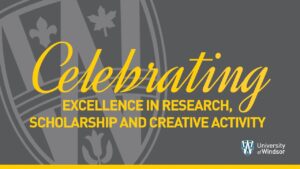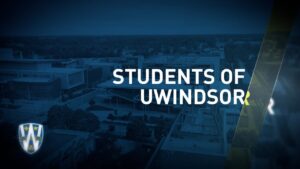Canada
Study in Canada
THE PEOPLE:
Known for their hospitality & tolerance.
Multi-cultural society.
English & French speaking.
Immigrants from over 240 countries.
POPULATION:
Canada ranks 37th by population, comprising about 0.5% of the world’s total with over 39 million Canadians as of 30 June 2022 (Source: Wikipedia)
The lowest population density in the world
85% of Canadians live within 300 kms of the US border
Welcoming over 2 lakh immigrants per year
CLIMATE:
Canada has 4 distinct seasons.
Daytime Summer temperature rises to 35-degree centigrade
The lowest of –15 degrees centigrade is not uncommon for Winters in Canada.
Moderate Temperatures are the norm during Spring & Fall.
IMPORTANT CITIES:
Toronto
Vancouver
Montreal
Calgary
Edmonton
Saskatoon
Regina
Winnipeg etc.
GEOGRAPHY:
Canada is bordered by three oceans: the Arctic, the Pacific & the Atlantic.
Niagara Falls.
Lush coastline and the Rocky Mountains.
Great lakes, rugged hills & picturesque coastline
Big Skies of the Prairies
43 National Parks
6 Time Zones
SPORTS & RECREATION:
Ice Hockey & Basketball
Skiing & Skating
Rugby & Soccer
Cinemas, Theatre & Film Societies
Pubs and Night Clubs
CANDIAN EDUCATION SYSTEM
Education in Canada is under the complete jurisdiction of the provinces and territories (States) and as such, there is no Federal (Central) education system in Canada. In keeping with the national commitment to education, public education in Canada is free up to and including secondary school (12th Std), in all the provinces. At the post-secondary level, institutions are divided into community colleges and universities. A significant number of university graduates attend college upon completion of their degree in order to acquire vocational skills for employment.
INSTITUTIONS:
The degrees & diplomas from Canadian Institutions are among the most widely recognized in the world. The education system in Canada encompasses both public-funded & private institutions. Students have a diverse choice of 92 Universities & 175 Community Colleges offering a wide array of programs. While pursuing their studies, the students are allowed to work part-time 20 hours/week during study and full-time during declared vacation by the institute.
TYPES OF CERTIFICATION
UNDERGRADUATE CERTIFICATE:
Is a qualification awarded upon successful completion of a program which is usually one year in length
UNDERGRADUATE DIPLOMA:
Is a qualification awarded on the basis of one or two years of successful study.
ADVANCED DIPLOMA:
Is a 3 years program some of which may lead to a Bachelor’s Degree.
BACHELOR’S DEGREES:
Are awarded by Universities/ University Colleges/ Community Colleges after three/four years of full-time study and lead to graduate-level studies.
POST GRADUATE DIPLOMAS/CERTIFICATES:
It leads to a Masters Degree. These programs have work terms which provide full-time opportunities to gain practical experience along with theoretical studies. A typical co-op term lasts up to 12 months. The prerequisites to participate in these programs are a Bachelor’s Degree of 3 or 4 years duration.
MASTER DEGREE:
Is an option for Bachelors Degree. Graduates who have an interest in further learning and research and for those who want to broaden their career possibilities. It is usually for 2 yrs duration and can be pursued after 4 yrs Bachelors or 3 yrs Bachelors & a 1 year Post Graduate Diploma from Canada.
DOCTORATE OR PHD:
Is a degree ranking above the Masters Degree and generally requires four to seven years to complete.
CANADA VISA
CANADIAN STUDENTS VISA
All overseas students are required to obtain a Student Authorization and Visa before going to Canada for studies. Students must also meet the requirements of the Canadian Immigration Act and Regulations. Under normal circumstances, allow at least 4-8 weeks for your visa to be processed. The application should be submitted well in advance of the planned date of departure to ensure that the processing of the application can be completed on time.
Submit the completed application kit to the immigration
ACCOMMODATION
RESIDENCE / DORMITORY:
Many institutions have accommodation conveniently located on or near their campuses. Many residences have a shared kitchen, toilets and other facilities. There is usually an option of having either a shared or private room. Dormitories are usually separated by Gender. In some cases, the meal plan can be included in the cost of the room.
OFF CAMPUS RENTAL HOUSING:
Renting is another option open to students. Many students share accommodation to keep costs down and usually find places that meet their needs & preferences. Many institutes offer an off campus housing service which can provide a list of affordable accommodation near the campus.
HOMESTAY
Many Canadian families welcome international students. Homestays also offer a more stable & secure environment for younger people coming to study in Canada. Typically, a home stay consists of a Canadian family hosting a student in their home while the student attends classes in Canada. Meals are provided in home stay but are not compulsory. Home stays are arranged by schools & students are matches with families who share similar interests.
HOW TO APPLY
INTAKE:
FOR UNDERGRADUATE &GRADUATE STUDENTS:
International students are expected to start planning for their studies in Canada 6-8 months in advance. The major intake for Canada primarily is ‘Fall’ i.e. September. The other intake is in the month of ‘Winter’ i.e. January, but it depends on the student’s program and the institution that he/she is applying to. Very few institutes might have the May intake as well.
THE ADMISSION PROCESS TAKES:
Day to two weeks for ESL
Four to Six weeks for Undergraduate.
Six to Eight weeks for Graduate.
EMPLOYEMENT IN CANADA
EMPLOYMENT:
International students graduating from a program of 2 years or more in length would be eligible for up to 3 years work permit after graduation. The experience gained would provide them an opportunity to work in an international setting and at the same time allow them to earn the money invested
INDUSTRIES:
A work Permit allows an eligible visitor to reside and work in Canada for a limited period of time, and restrictions are usually placed on the type of employment which can be pursued. One can apply for a work permit form outside Canada only if one has a job offer from a Canadian employer though it will not, by itself, lead to a Canadian Permanent Resident status. Work permit is not an immigration document as it does not permit one to live in Canada permanently. In order to live permanently in Canada you must qualify under an immigration category such as a skilled worker.
WORK PERMIT:
A work Permit allows an eligible visitor to reside and work in Canada for a limited period of time, and restrictions are usually placed on the type of employment which can be pursued. One can apply for a work permit form outside Canada only if one has a job offer from a Canadian employer thought it will not, by itself, lead to a Canadian Permanent Resident status. Work permit is not an immigration document as it does not permit to live in Canada permanently. In order to live permanently in Canada you must qualify under an immigration category such as a skilled worker.















